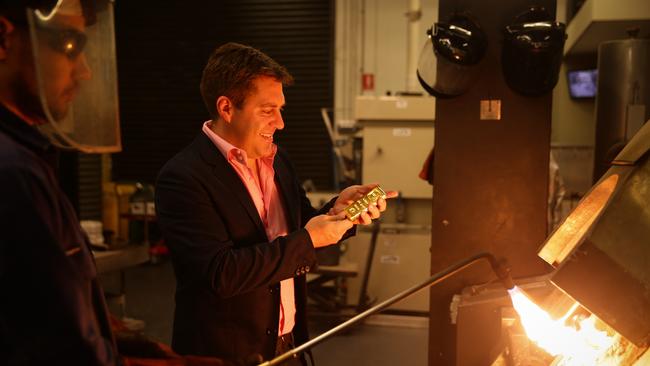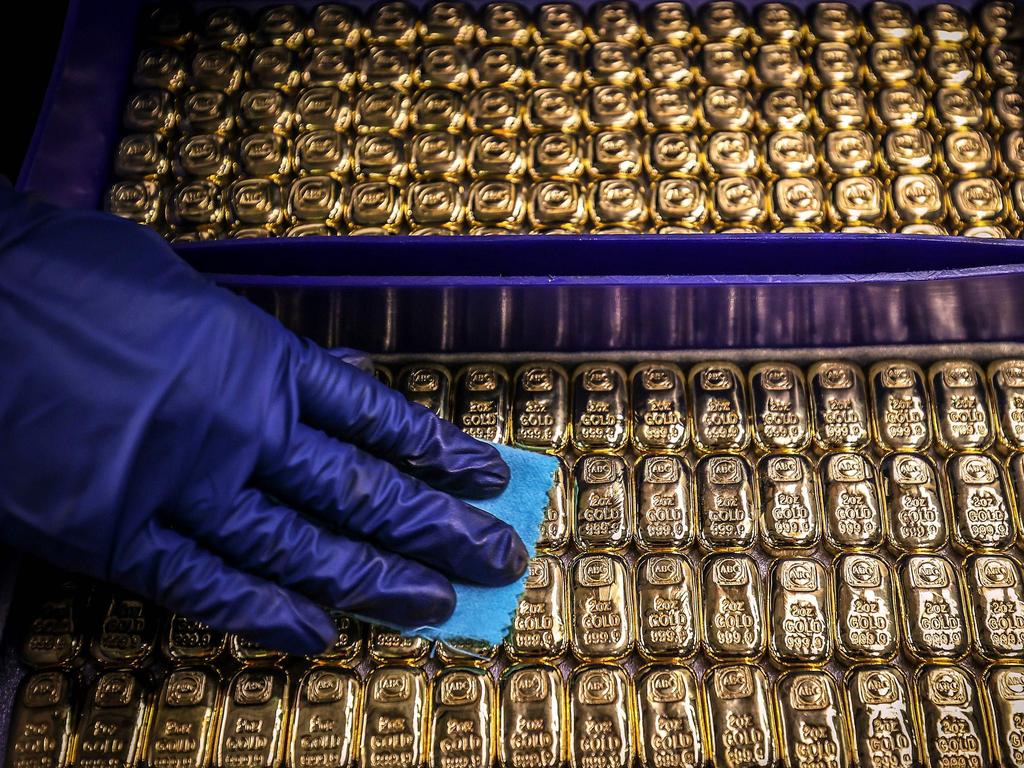
But in 2021 that success will fade because more and more detail is emerging about the ruthless actions of the ATO in the so-called “gold case”.
We have already discovered that the ATO deliberately bankrupted honest gold refiners, causing their army of highly-skilled employees to be retrenched. What we have now discovered is that this action was taken in defiance of the clearly-worded opinion of the ATO assistant commissioner, Tax Counsel Network, Gordon Brysland, who is widely regarded as the best authority on GST and related issues in the land.
I have legally obtained the full 2013 Brysland opinion, which has only recently been discovered among many tens of thousands of papers released some years ago by the ATO under freedom of information laws.
The revelation that the ATO defied a person of the stature and reputation of Brysland will shock the entire tax community and Canberra politicians of all parties. While the ATO will deny this, to outsiders it looks like the ATO was engaged in a massive mistake cover-up.
In the 12 years to 2012 criminals had been robbing the states of GST revenue by exploiting a loophole in the 2000 GST legislation which had been rectified by every other country except Australia. No one likes to announce a billion dollar mistake.
ATO officials devised a scheme whereby the ATO would declare that Australian gold refiners were not really refining gold at all when they put into the furnaces gold that was already close to purity. The ATO scheme relied on a distinction between refining and “subsequent purification.” Using the ATO scheme’s “refining” definition the ATO could refuse to refund GST and levy huge tax bills with penalties and interest.
In 2013 officials put the scheme to a number of ATO committees and were told that the ATO definition of refining was wrong and so the refiners were complying with the act.
Not satisfied, the ATO draft discussion paper was then put to the ultimate authority - Gordon Brysland - who in a very detailed opinion debunked the ATO’s proposed distinction between “refining” and “subsequent purification”, plus the proposed concept that gold is only ever refined once.
Brysland went back to the Macquarie dictionary to gain a clear meaning of refining to confirm his opinion.
Around the same time the Australian Federal Police suddenly raided a number of refiners and some had their GST impounded for a short time. No charges were ever laid and in later court hearings refiners were declared innocent of fraud. The ATO should have followed the money path ,which almost certainty would have led it to some of the crooks.
What also was required in 2013 was for the loophole to be blocked, but that meant telling states of the huge losses they had suffered. Two years later, around 2015, the loophole was still there and the ATO decided to defy the Brysland opinion and so sent the refiners massive tax bills and impounded their GST.
On receiving these massive assessments many of the refiners were technically insolvent and so were set up to be blamed for the billion dollar plus loss of state revenue. Sadly for the ATO the Cochineas gold refining family and its backers managed to survive. They mortgaged heavily to take on the ATO.

The first level of appeal was the so-called General Anti-Avoidance Rules (GAAR) Panel that is supposed to provide independent advice to ATO decision makers. Guess who chaired the panel? None other than one of the authors of the ATO scheme debunked by Brysland. It was clear that the ATO intended to win by fair means or foul.
The next level of appeal was the Australian Administrative Appeals tribunal which promised to issue its findings by February - March, 2019. But the AAT delayed its conclusions until December 2019 and almost every submission made by the ATO was endorsed. Gordon Brysland must have been absolutely stunned.
Appeal level three was the full Federal Court, where three of Australia’s best tax judges issued a scathing judgment on the AAT and defined gold refining using almost exactly the same words as Brysland.
Having spent at least $40m of taxpayer money, the ATO is now appealing to the High Court, but not on its base refining definition case, because everyone in the ATO now recognises that Brysland’s 2013 opinion was right.
The Federal Court also branded the AAT judgment a denial of “procedural fairness” because one of its conclusions relied on two emails where a director of the former gold refining company and key witness, Phillip Cochineas, and his group were not a party.
The three judges declared: “The tribunal relied on the two emails to infer that Mr Cochineas appeared to have given false or misleading evidence in the compulsory examination.”
The ATO wants the High Court to declare that what happened in the AAT was fair so it can implement section 165, which is the “catch all” taxation scheme clause.
As a secondary case the ATO wants the High Court to declare that even if Phillip Cochineas had been cross-examined over the emails then any AAT ruling was irrelevant to the operation of section 165.
The ATO is essentially arguing that the rules of procedural fairness need not apply and that the ATO itself should decide on section 165 matters – not either the Federal Court or the AAT.
How the gold refiners could be engaged in a scheme vulnerable to section 165 when they were obeying the rules of refining, as defined by the ATO’s Gordon Brysland, stretches the imagination.
I have the highest opinion of the High Court and if it decides the law means that the ATO controls section 165 matters then parliament needs to be recalled to amend the tax legislation
* Footnote: It took until 2016 and five commentaries from myself before the ATO plugged the loophole.






The year 2020 should have gone down as a complete triumph for the Australian Taxation Office. Treasurer Josh Frydenberg might have been the architect of the JobKeeper rescue package but it was implemented brilliantly by the ATO.